You feel pushed. Manipulated. Exploited. Dominated. Coerced. Pressured. Bullied. Controlled.
The person in front of you has gone too far and has overstepped your personal boundaries. But you don’t know what to do; you feel weak and helpless. A quiet desperation rises inside of you. You feel like a fly stuck in a web.
What can be done?
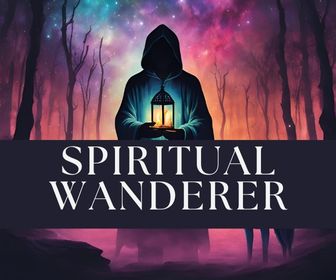
Spiritual Wanderer Course:
Being a lone wolf and a spiritual wanderer is a sacred calling in life – a unique and alchemical path of awakening. You don’t need to feel lost, alone, or stuck on your journey any more. It’s time to meet your soul’s deep needs for clarity, self-acceptance, and empowerment. Let us show you how …
If you struggle with energy loss and issues such as over-commitment, lack of assertiveness, and feeling exhausted all the time by those around you, keep reading. It’s time to draw a clear line and reclaim your personal power.
Table of contents
- What are Personal Boundaries?
- Why Are Personal Boundaries So Important?
- Sensitivity, Absorbing Energy, and the Power of Purification Rituals
- 18 Signs You Have Poor Personal Boundaries
- 9 Signs Someone is Violating Your Boundaries
- Why Do We Suffer From Poor Personal Boundaries?
- 5 Myths About Personal Boundaries That People Believe
- Boundaries and the Spiritual Awakening Journey – Why They’re Crucial
- 12 Benefits of Creating Strong Personal Boundaries
- 9 Ways to Create Personal Boundaries That People Don’t Ignore
- Final Words
What are Personal Boundaries?

Personal boundaries are the mental, emotional, and physical walls we create to protect ourselves from being used, manipulated, drained, or violated by others.
These limits help us to clearly distinguish who we are and what we need from other people and their needs.
Creating and maintaining personal boundaries is essential to cultivating physical, emotional, and psychological well-being.
Why Are Personal Boundaries So Important?

Boundaries are an essential way of creating and upholding a healthy self-image. When a person has strong personal boundaries, it communicates to the world that they exude healthy self-respect and self-worth.
Most importantly, healthy boundaries help us to create a safe container within ourselves where self-compassion and mindfulness can blossom. Hence, creating boundaries makes us feel fundamentally good and preserves our personal integrity.
But without personal boundaries, we run the risk of confusing our needs and wants with others, which leads to codependency.
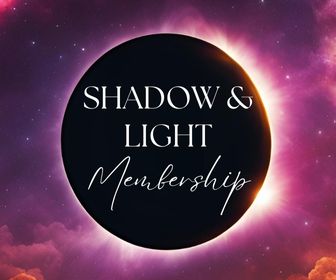
Shadow & Light Membership:
⭐️⭐️⭐️⭐️⭐ "Straight from the very first weekly email, this has been mind-blowingly powerful, the synchronicity and the on-vibe contents resonate uncannily with my soul’s current challenges." – Marie
Codependency is a term that describes a toxic one-sided relationship where we derive all of our happiness from others. The reality is that it’s impossible to enjoy a healthy relationship without strong and clear boundaries.
Without personal boundaries, there is also the risk of experiencing heightened stress and feelings of hopelessness.
Overcommitting to everyone and everything tends to take a serious toll on your mental health, which can eventually lead to burnout – or worse, a nervous breakdown.
Finally, a lack of personal boundaries can result in feelings of being worthless, weak, or not good enough. In other words, our self-esteem becomes severely impacted, and we may struggle with issues such as chronic self-doubt, self-judgment, and self-loathing.
Not being able to voice our truth and communicate our needs in a clear way can be deeply distressing and demoralizing.
Sensitivity, Absorbing Energy, and the Power of Purification Rituals

Developing clearly defined boundaries is crucial in all dimensions of life, including on the spiritual and energetic levels.
If you’re an empath or highly sensitive person like me (or someone who deals with people’s issues directly, like a healer or therapist), it’s always a wise idea to ground and clear your energy field each day as a form of boundary-setting.
We walk through life picking up so much mental, emotional, and energetic debris from the interactions we have with our environments.
Setting the ritual of purifying yourself on all levels can help you find more spiritual clarity, calmness, and groundedness, especially if you’re gifted with high sensitivity.
Some purification ritual ideas include:
Would you like to save this?
Your information will never be shared.
- Taking a shower or bath and visualizing all the gunk of the day washing down the drain
- Walking barefoot on the earth and feeling the ground’s energy neutralizing your energy field
- Sitting in nature and engaging in some ecotherapy
- Deep and slow breathing from the bottom of your belly (via breathwork)
- Using incense or herbal smoke
- Self-applied reiki (I do this daily, as well as the first recommendation)
18 Signs You Have Poor Personal Boundaries

Pay attention to the following signs. How many can you relate to?
- You fail to speak up when you’re treated badly
- You give away too much of your time
- You agree with a person when you actually feel like disagreeing
- You say “yes” to a person when you want to say “no”
- You feel guilty for dedicating time to yourself
- You feel taken for granted by others
- You permit people to touch you when you feel uncomfortable or want them to stop
- You have toxic relationships (i.e., you’re always giving, and the other is always taking)
- You make too many grand sacrifices for others at your own expense
- You are passive-aggressive and might have manipulative tendencies (as a way of trying to regain your lost power)
- You constantly feel like the victim
- You feel like you have to “earn” respect by being nice
- You over-share details about your life with others
- You feel guilty when others aren’t happy (as if you’re solely responsible)
- You are what other people want/need you to be, and not who YOU need to be
- You’re out of touch with your needs
- You attract people who try to control or dominate you
- You have chronic fear about what others think of you
Pause to consider which one of these points caught your eye and tugged at your awareness most strongly. Then, take a moment to place a hand over your heart and send yourself some understanding and kindness.
Having poor boundaries is a frustrating and painful experience, and you’re certainly not alone in experiencing it.
9 Signs Someone is Violating Your Boundaries
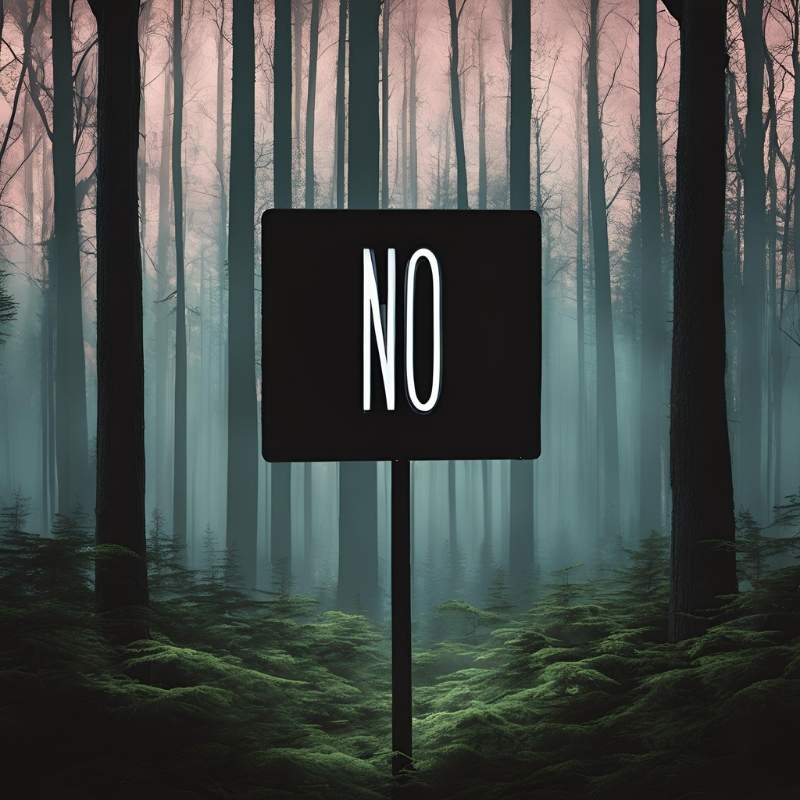
Pay attention to these red flags of having your personal boundaries violated:
- You feel the need to defend your boundaries (because the other person is resistant to you setting them for some reason).
- Your “no” isn’t being respected, and the person keeps doing the behavior that causes you to feel threatened or uncomfortable.
- Your personal space is being violated, and the person is touching you or standing too close to you in a way that makes you feel gross or unnerved.
- You aren’t being listened to, and you keep getting spoken over or ignored.
- You’re experiencing emotional abuse, and the other person mocks, denigrates, or manipulates you.
- You’re being pressured to act in a certain way or do something that you don’t want to do.
- You’re being controlled and coerced to play a certain role.
- You feel as though you can’t negotiate with the person because it’s ‘their way or the highway.’
- You feel disturbed, exhausted, or on-edge after being around the person for reasons you can’t quite pinpoint.
You’ll find that sometimes, some people unintentionally violate your boundaries (e.g., showing up unannounced at your house as a ‘surprise visit’).
Other times – like what I’ve experienced a lot due to life circumstances – you’ll deal with people who have a dark triad personality (narcissistic, machiavellian, or psychopathic personalities) who seem to get pleasure out of overstepping your boundaries as a way of ‘testing’ you.
Remember that you are a sovereign being, and your boundaries are sacred. They’re your protective bubble to keep, maintain, and assert at will.
Why Do We Suffer From Poor Personal Boundaries?

Before going too deeply into the understandable urge to blame or shame yourself in some way for having poor boundaries, I want you to understand that it wasn’t your fault, but it is your responsibility to develop strong boundaries now. So take a moment to feel some compassion, or at least sympathy, for yourself.
As children, we had no control over what our parents, teachers, and the adults around us taught us.
As a result, most people with absent or weak personal boundaries as adults struggle to feel confident enough to draw a line and adequately tend to their needs.
The codependent dynamics within our families, as well as being taught that “love equals what we do, not who we are,” contribute significantly to this lack of internal solidity.
As children, the first role models we had of “acceptable” behavior were our parents and family members. So pause to reflect here: what messages did your mother, father, caretakers, siblings, or other adults send to you growing up?
Were you only given love when you pretended to be who your parents or caretakers wanted you to be?
Were you only rewarded when you went out of the way to sacrifice your needs and desires in favor of someone else’s?
Were you punished for saying “no” or speaking up?
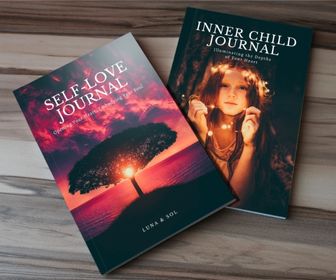
Inner Work Journal Bundle:
⭐️⭐️⭐️⭐️⭐ "I highly recommend this. Each journal is beautifully designed, with ample room for reflection and gorgeous supporting images and quotes. Anyone who uses these journals is likely to experience a priceless payoff." – D
Did you feel obliged to emotionally “take care” of an adult, perhaps a parent?
These were all signs that you were taught that it was “good” to lack personal boundaries.
5 Myths About Personal Boundaries That People Believe

If you struggle with setting clear boundaries, you might carry a number of mistaken beliefs that you were conditioned to believe.
Here are some myths to be aware of:
- “Having personal boundaries is selfish.” – This myth is probably the most common one out there and it’s based on the unhealthy belief that in order to be worthy, we must be martyrs constantly self-sacrificing our needs. In reality, having boundaries is a form of self-respect that allows us to practice self-love, which can ripple out into the world and positively influence those around us. Take a moment to reflect on any good therapist or mental health professional. How do they do their job effectively? The answer is by having strong and clear personal boundaries. (Imagine taking on all the issues of those you serve – how exhausting and overwhelming!) The truth is that all mentally and emotionally healthy people possess clear boundaries.
- “Having personal boundaries will cause my relationships to suffer.” – If you are in a codependent relationship, creating boundaries will most certainly create uncomfortable waves of change. If your partner is codependently entangled with you, there’s a high chance that they will be shocked and will certainly resist your efforts to be happy and healthy. (The same thing goes for codependent friendships.) If you find yourself in this situation, I encourage you to consider whether being in a toxic relationship/friendship is actually worth it. All healthy and supportive relationships will actually THRIVE and encourage the establishment of personal boundaries.
- “Having personal boundaries will cause people to dislike me.” – This myth is partly true and partly false. The reality is that, yes, setting clear boundaries might step on a few people’s toes. But creating boundaries will also cause more people to respect, hear, and like you. There’s nothing more admirable than a person who refuses to take bullshit from others and who stands by what they believe to be true. Not only that, but when you set boundaries, you’ll actually attract more people who are willing to respect you and be authentic friends or lovers.
- “Having personal boundaries will make me miserable.” – This myth often appears as an underlying assumption that many people carry. But my response is simple: creating personal boundaries might feel uncomfortable at first, but pretty soon, it’ll make you feel empowered and in control of your life again. So the opposite here is true: having personal boundaries will actually make you MUCH happier!
- “Having personal boundaries sounds rigid.” – Personal boundaries are not black or white or set in stone – they are flexible according to your needs in the moment. So don’t feel the need to be harsh and cut people off. There’s a big difference between rigid boundaries and healthy boundaries. Rigid boundaries are walls constructed to permanently block people out, whereas healthy boundaries are adaptable and can change according to our inner needs.
Boundaries and the Spiritual Awakening Journey – Why They’re Crucial

Creating healthy personal boundaries doesn’t just benefit our everyday interactions with others, but it also enriches and strengthens our connection with our Souls.
When we’re constantly looking outside of ourselves and people-pleasing, we tend to forget that we all have a unique path in life, and it’s our job to listen to our true callings.
Lacking boundaries means that we’re frequently looking to others for direction and getting codependently enmeshed in their lives rather than focusing on our own.
Sometimes, what happens is that we get so wound up in other people that we “lose” ourselves. We experience a kind of soul loss (or being disconnected from our souls) that creates feelings of emptiness, loneliness, aimlessness, anxiety, and depression.
Lacking self-awareness of our true needs because we have poor boundaries, we may even fall into a Dark Night of the Soul where we feel totally lost and disconnected from our Higher Power (whatever that personally looks like).
Creating boundaries is an essential part of the spiritual awakening journey because it supports us in being true to ourselves, embracing our inner lone wolf, and walking our own paths.
12 Benefits of Creating Strong Personal Boundaries

Here are some benefits that you can expect from putting in the hard work of setting clear boundaries:
- You’ll be able to say “no”
- You’ll feel empowered again
- You’ll feel more in control of your life
- You’ll attract healthy + supportive partners and friends
- You’ll have more mental, emotional, and physical energy
- You’ll be able to speak up and be heard
- You’ll feel more appreciated and valued
- You’ll be more in touch with your needs
- You’ll spend more time on yourself (without the guilt)
- You’ll experience more emotional balance and happiness
- You’ll experience increased self-esteem and self-worth
- You’ll feel more courage and freedom to be yourself
Remember that these qualities won’t develop overnight, but with practice and persistence, you’ll be able to experience many of these empowering benefits.
9 Ways to Create Personal Boundaries That People Don’t Ignore
Creating boundaries is less about other people and more about you and the beliefs and mindsets you have.
The following practices and pieces of advice will help you target both your core beliefs and habitual behaviors.
1. Understand that you have the right to have boundaries

Lurking underneath the surface of people-pleasing behavior is the belief that we “have no right” to set boundaries. It’s time to challenge this ingrained assumption.
Why are others allowed to have boundaries and not you? Why must you feel like a lesser human being and elevate others above yourself?
It is a fundamental right of all human beings to have personal boundaries. Consider it your birthright to establish boundaries that define and protect you. Not only is it your right to create boundaries, but it is also your responsibility.
2. Understand that your thoughts, feelings, and needs are equally important to others

No one’s thoughts, feelings, or needs are “above” anyone else’s. Social status is an illusion created by the human mind.
In other words, the Queen of England’s needs are equal to a homeless person’s needs. The only division created between us and others exists in the mind. Therefore, you are not “less important,” valuable, or worthy than others. Your needs are equally important to those in your life.
Learn to see yourself as equal to others. Affirm your worth each and every day with a mantra such as “I am worthy and my needs are important.” Learn to disagree with those who try to make you think or feel otherwise.
3. Explore your needs
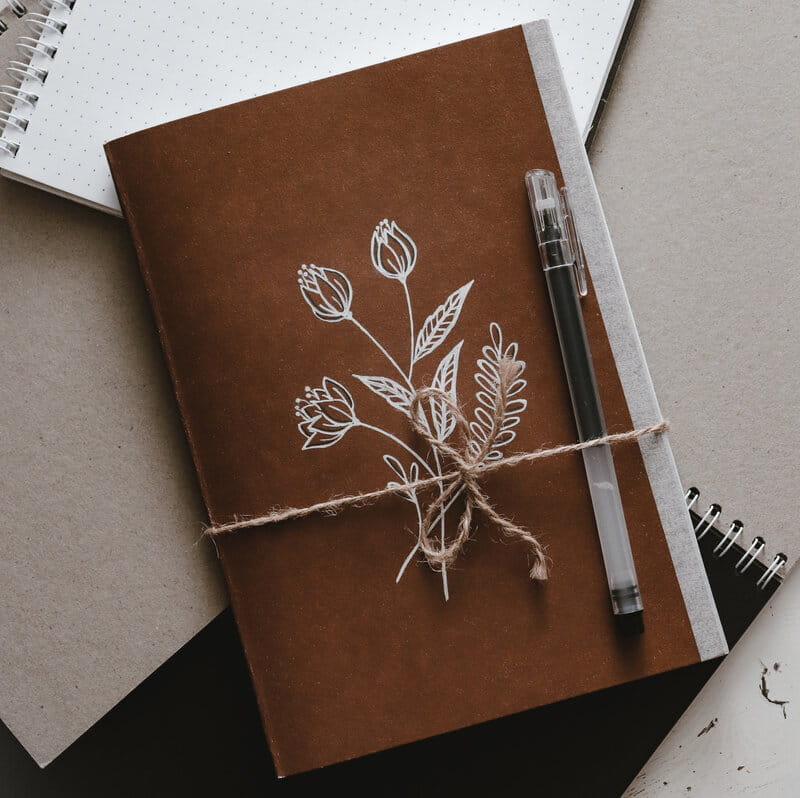
Chances are that you don’t have much experience or knowledge of your true needs, especially if you ignore them to cater to others’ demands. Now is the time to start learning more about yourself.
Keep a daily journal in which you record your thoughts, feelings, needs, and desires. Practicing self-reflection and introspection will help you to become more in tune with what you really need at any given moment. (Here are some journaling ideas.)
Practicing a few simple mindfulness exercises is another powerful way to know what boundaries you need to set during the day.
Dedicate yourself to tuning into and learning more about who you are and what you really want out of life. This is one of the best ways to begin setting personal boundaries.
A fun way to start learning about who you are is by taking self-discovery tests (take a look at our many insightful tests!).
4. Practice daily self-care (because you’re worth it!)

Practicing daily self-care is a supplementary practice that will bolster your ability to set clear personal boundaries.
When you get into the habit of nurturing yourself, you’re already setting yourself up for success. You’re sending yourself the message that “I’m worth taking care of.” Setting firm boundaries will then seem like the next natural step in your self-care routine.
Simple ways to perform self-care include taking time to relax, practicing meditation, making delicious and nutritious food for yourself, exercising, setting daily goals, complimenting yourself, rewarding yourself, taking a nap, connecting with nature, drinking a soothing cup of tea, and many other practices.
Check out this article on self-love for more suggestions.
5. Learn to say “no”
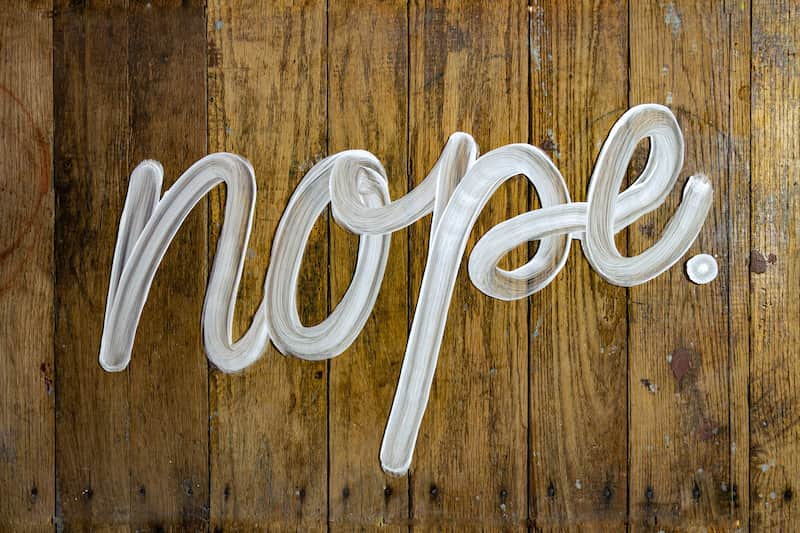
Saying no is a key part of learning to be assertive and honoring your needs. You don’t need to flat out or aggressively say “no” if the situation doesn’t call for it.
For over 12 years, we've poured our hearts into creating free content on this website. Unlike many platforms, we believe this guidance should be accessible to everyone. If this post empowered you in any way, please consider making a donation to keep us going. Any amount (one-time or ongoing) makes a huge difference.
Instead, you can try saying phrases such as “No thank you,” “I can’t,” “I’m not able to,” “Not now,” “I’m busy, sorry,” “Maybe next time,” “I appreciate the offer, but I’m unable to,” and so forth.
Experiment with different ways of saying no and see what feels most resonant with your personality.
6. Identify when people cross the line (aka., “difficult people”)

It’s not always easy to identify when others overstep your boundaries, particularly if you’re used to not having any. However, there are some types of people (let’s call them “difficult people”) who quite blatantly cross the line.
Take time to record in a private journal each day all of the moments when you felt uncomfortable, upset, or disrespected by someone during the day. This journaling exercise will help you to develop more self-awareness.
Another way to know when people have overstepped your boundaries is by tuning into your body. Try to notice when you feel sensations like butterflies in your stomach, tension in your shoulders, or an increase in blood pressure, which will manifest as feeling flustered and hot.
Use these sensations as triggers to help you tune into the present moment and practice boundary setting.
To set boundaries with difficult people such as narcissistic, histrionic, and other egomaniac types:
- Create a list (on your phone, in your journal, etc.) of ways to say “no” that don’t stir up drama and preserve your energy (see the previous point on this list)
- Try to create as much physical, mental, and emotional distance from them as possible whenever you can
- Don’t get invested in their chaos – remember that they are responsible for themselves and their own well-being
- If you’re stuck dealing with such a person, try the “grey rock” method of self-protection where you become as bland and neutral as possible so as to stay grounded and calm
7. Stop overcommitting

You’re not obliged or indebted to uphold every single social commitment that you have. Don’t try to please others at your own expense. Committing too much to other people and circumstances creates stress and burnout.
Learning to say no to non-essential things like work get-togethers, parties, and other social duties that are not life-or-death takes practice.
So be gentle with yourself, remind yourself why you’re on this journey in the first place, and graciously decline whatever “fills your cup” too much. At the very least, others will appreciate your honesty.
8. Be courageous: let go of toxic friendships and relationships

It takes a certain level of courage to stick to your personal boundaries. Fake friends and flimsy relationships will inevitably self-destruct and fizzle away during this process. As a result, you might be left with feelings of guilt, shame, or feel like you’re doing something wrong.
It’s vital in these tough times to keep affirming that setting personal boundaries is your fundamental human right. You are WORTH it.
Those who try to control, use, or abuse you will likely try to stop you – but don’t let them hold you back. Step away from those people who are polluting your life and seek out new friendships that are supportive and uplifting.
9. Seek help (but not from friends or family)

If you still need help setting strong personal boundaries, chances are that those around you probably reinforce codependent behavior. So it’s not a wise idea to seek advice from them, however well-intentioned they may be.
If you need more in-depth advice and personal assistance, I recommend either reading a book such as Boundaries: When to Say Yes, How to Say No by Henry Cloud and John Townsend, or seeking the help of a therapist (or both).
I also recommend checking out the Sacred Boundaries Journal I’ve created to help you set clear, empowered personal boundaries.
If you’re a sensitive soul who doesn’t know how to say ‘no’ effectively, this journal can help you tune into your inner needs, access increased energy, and find more balance and self-sovereignty in life.
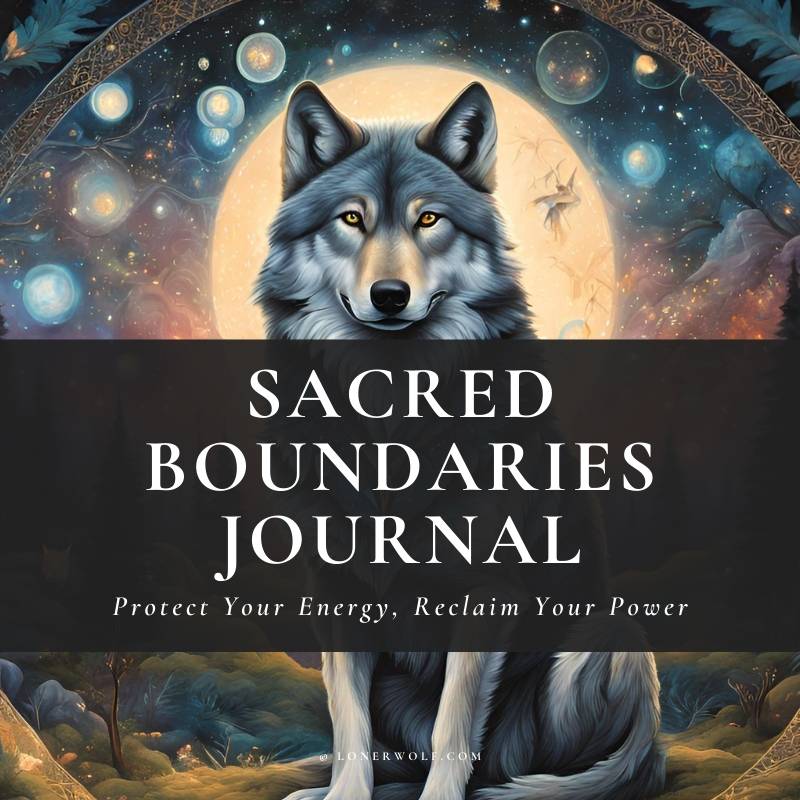
It features:
- 100% editable & printable format
- 30+ journaling prompts exploring the physical, mental, emotional, and spiritual dimensions of setting boundaries
- Lush images with quotes
- Healing mantras
- Oracle/tarot card spreads
- Book recommendations
You can download it as a bonus in our Shadow & Light Membership, where you get this journal plus a whole month of intuitive guidance and personal spiritual support.
This journal was a joy to create, and may it serve you well!
Final Words
To end, I want to remind you to be mindful of approaching this journey with gentleness and self-compassion.
You weren’t responsible for developing poor boundaries (it was how you were conditioned). However, you are responsible for now changing them and owning your personal power. I hope this article has given you some helpful pointers to help you do that.
Tell me, what experiences have you had with people overstepping your boundaries? And what advice can you give to others in your situation? I’d love to hear from you in the comments!
If you need more help, we offer 3 powerful ways to guide you on your inner journey:
1. The Spiritual Wanderer Course: Feeling lost or uncertain about your path and purpose in life? Gain clarity and focus by learning about the five archetypes of awakening within you. Discover your deeper path and purpose using our in-depth psychospiritual map. Includes 3+ hours of audio-visual content, workbooks, meditations, and a premium test.
2. Shadow & Light Membership: Seeking ongoing support for your spiritual journey? Receive weekly intuitive guidance and learn to embrace your whole self, including your shadow side. Deepen your self-love and receive personal support from us.
3. Spiritual Awakening Bundle: Ready to soul search and dive deep? Access our complete "essentials" collection of beloved journals and eBooks. Includes five enlightening eBooks and seven guided journals, plus two special bonuses to further illuminate your path.


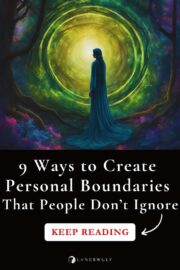





I really feel for everyone in this thread who’s found it hard to set boundaries due to negative childhood/family experiences. I would not describe myself as someone who struggles to say no, or assert myself where necessary, and certainly I grew up in a family where that was encouraged and given voice. I never would have described myself as being vulnerable to boundary violations or difficulties in this regard, and spent the first three decades of my life without issues. But in the space of a year, I found myself in a toxic relationship with someone for whom boundaries are some kind of a sport. There was no part of me that consented to having my boundaries violated, and I was shocked and horrified that such people exist, who will say they are sorry, lie about it never happening again, then in the space of a breath say it’s your problem and you invite being treated like this and it’s because you are so uptight/have ridiculous boundaries/deserve to be treated like this. I don’t know how I ended up there and don’t know why on earth I did not run, as I knew what was happening as it was happening. I kept expecting him to behave normally but kept feeling like the rug was being pulled out from under my feet – I felt so destabilized, misunderstood and a failure at communication (which I always thought was my strong point). It only made sense within the framework of empath/narcissist. Yet knowing that, I still could not get out because I would break up with him and then be love bombed, he would promise to go to counseling etc etc. Between that were all the times when I was the problem, and it was as though the apologies had never occurred, the promises never happened, and I was crazy/ridiculous “just like my family.” The only way to make sense of why I did not just walk away forever is that I was so scrambled by this treatment and I kept thinking, oh, if only I can explain to him how abusively he’s behaving and how this is making me feel undermined, disrespected, and in deep emotional pain, surely he won’t act this way anymore. And there would be long periods of time where he would seem to change and become self-aware. Fast forward ten years and we are married, have two young children and I’m realizing, based on how disrespectfully I’m being treated in front of my own children, that this will never get better. It’s not that I have given up on setting boundaries, but i cannot seem to find any meaningful consequences to deter him from breaking them. And I get so emotionally shattered from being sworn at aggressively in front of my 3yo for the slightest perceived violation, that I can’t seem to access the grey rock response. He controls all of our (I mean, “his”) money, has house titles in his name, and would not stop at anything to get revenge, make sure I have nothing financially and whatever maximum custody he could get of the children, were I to leave. My family live in another country and I can’t return there with the children, were we to split up, without his approval – which he would never give. The court system here does not recognize verbal or emotional abuse as factors in determining custody of children. As a narcissist, there’s nothing too cruel for him to say or do and no action that’s out of bounds to punish me and to feel powerful and like he‘s “won” against me. Because that’s what I deserve, because I am so crazy and actually he is a victim of me not being nice to him etc etc etc. Honestly, the deluded way he reframes the situation to villainize me does my head in. So I do not want to be a victim and it’s a very ill-fitting hat but I do feel trapped, because I know I’m my bones that I have to proceed with extreme caution. In the meantime, as I carefully consider my options, how do I deal with the constant boundary-breaking as I’m rendered completely incoherent and exhausted by newborn baby sleep deprivation? The way he behaves is just so shocking and disrespectful that it completely undoes me with my defences fragile from not sleeping for months.
Jani,
Your description of what your life has become at the hands of this “person” has given me a new perspective on my own life.
I’m the “sweep it under the rug” (out of sight? Out of mind); “but his love was so pure the first year and a half, (we’re going on year 6, the last 3 years have broken me) – surely that man is still in there somewhere (yeah..that man isn’t coming back)”; “but he said he would do the self work” – he said he would start doing the self work in 2021…and many times since then, but hasn’t begun it yet…and many other things. He even rejected & abandoned me, after I moved to his country of origin (I do not speak the language and he won’t teach me, although he used to teach English as a second language in the college here), chose someone else….talked me into befriending her just so I could watch him give the love that was supposed to be for me to someone else that didn’t truly want it, she just didn’t want me to have it…but he remained in the apartment with me…I learned a new wound through that- Ambiguous Loss.
I’ve been struggling with leaving, going back to my country of origin….
Reading your abuse you are having to endure has made me realize this…it’s been 3 years of literal hell, and empty broken promises…it’s not going to “get better”…
I send you peace, strength, unconditional love and sanity…be safe…I’m going to start packing…and call “home”….
One of your very best articles. I thoroughly enjoy reading some of your articles. This resonated so close to my heart it wasn’t funny. In the last week I recognised my boundaries had been overstepped and told the person they had overstepped my boundaries and I couldn’t be friends any longer. Very hard decision to make and it was a decision made from my gut. Your article has made me realise why I felt so bad doing what I did and that I’m not a bad unworthy person telling someone I couldn’t continue the friendship – a narcissist, and someone I loved (or thought I loved) till I realised they were not capable of loving. Another article which you have dealt with and I’ve found so enlightening. Thank you so so much. I’ve grown and learnt so much from you it’s not funny.
Heather
When someone intentionally oversteps our boundaries in a repeated way, it’s definitely a clear sign to move on. I’m so glad that this guide has helped you, Heather 💜
Dear Aletheia, I opened the article on Sunday and I felt like it was so much actual for me. Last Saturday we had a family meeting with my parents and my cousin’s family. With my parents I have a pretty close relationship, we have been working really hard to grow it and I feel like we have still a lot to give to each other. My cousin started to annoy me several years ago with her ignorance, empty soul and going with the mainstream without any individual thoughts. I try to avoid her as much as possible but last Saturday I thought I would give another try. She did not really insult me directly but her behaviour and sentences pushed a button on me, I got really angry and decided to go home immediately for my own peace. I was very close to shout on her and say hurtful things but I decided not to do because of my parents and because it would lead nowhere in my opinion. I was driving home in my car and I was shouting the whole way. I arrived home having a real bad headache from the anger. I decided to listen to music and started talking to a friend of my mine to calm myself down. When I woke up the next day I was proud of myself that I was able to set my boundaries again. In some extent I still feel like I’m hurting myself with this anger for setting a boundaries. Of course I feel this is a huge progress compared to not setting them but how can I overcome becoming angry?
Thank you for your thoughts,
Ágnes
You can’t necessarily overcome the anger, because it’s a normal instinctual feeling that arises when we feel threatened in some way. But you can learn to channel it via practices like singing, journaling, and catharsis, and also reframe it so you see the anger as a positive but sometimes misguided ally rather than an enemy. I’m glad that you left the situation before doing harm to another. Thanks for being here Agnes :)
Thank you for your advices, Aletheia. I’m grateful that I have found your site and be part of this community :)